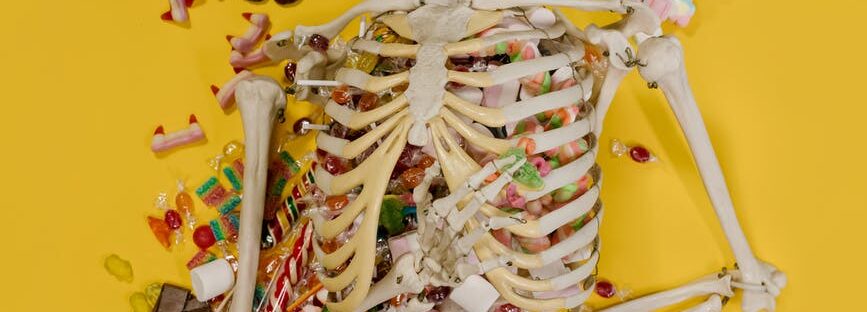By now I’m sure many of you have seen the headline making news this week about a study following more than 50,000 British people over two decades finding that vegans were 43% more likely to suffer a fracture compared to people who ate meat and fish. You can read an article summarizing the study here.
Without analyzing the data and doing a complete deep dive on everything the study found, including any potential flaws, the methods and limitations, it’s important to take a moment to recognize that yes, following a vegan diet will require some planning to ensure that you’re meeting your micronutrient needs. Honestly, most any diet in today’s modern food system that meets all of your nutritional needs is going to require some level of planning, so don’t let that discourage you from making the change to eating more plant-based.
Ways to meet your needs
Lucky for today’s vegans and other dairy-free individuals, many products on the market are fortified with important vitamins and minerals that can be lacking in a vegan diet. A few commonly fortified nutrients that can be lacking in a vegan diet include vitamin B12, vitamin D, and calcium.
Vitamin B12
The only source of vegan vitamin B12 comes from fortified foods, supplements, and nutritional yeast. Vitamin B12 is found almost exclusively in animal products including meat and dairy products. I recommend requesting to have your Physician monitor your vitamin B12 levels when you first begin a vegan diet to establish if your levels are optimal and then monitor annually after that to ensure that you’re continually meeting your needs. The general recommendation is for anyone following a vegan diet to take a vitamin B12 supplement. I personally have had a low vitamin B12 level which is embarrassing to admit because I’m a nutrition professional. But we’re all human and it can happen to anyone. Having your vitamin B12 levels out of range can cause permanent damage if not rectified, but luckily your levels increase pretty quickly with supplementation or the use of B12 shots, if indicated. Your Physician or Registered Dietitian can provide you with more information regarding vitamin B12 specific to your needs and lifestyle.
Calcium
Calcium is another nutrient that can be lacking when following a vegan diet and doesn’t always get as much attention as vitamin B12. Calcium is tightly regulated in your body and is required for a ton of processes including vascular contraction and dilation (think blood vessels constricting or expanding), hormone secretion, and muscle function. The level of calcium in your blood does not fluctuate with dietary intake changes which makes it sometimes challenging to find a calcium deficiency because there aren’t any obvious symptoms in the short term. Most low calcium levels result from other medical conditions such as renal failure or use of certain medications. Instead of not having enough calcium to function, your body will steal calcium from its massive reservoir: your bones and teeth. This can be problematic for your bone mineral health if your body keeps leaching calcium out of them. According to the FDA, “adequate calcium and vitamin D as part of a healthful diet, along with physical activity, may reduce the risk of osteoporosis in later life.”
The nuances involved with bone health and remodeling are much too involved to include in this post. The short story is that calcium and vitamin D in conjunction with phosphorus work to keep your bones healthy. If any of these end up out of their recommended range it can have a detrimental effect on your body. A sedentary lifestyle lacking weight-bearing exercises and resistance training can also negatively impact your bone mineral density (BMD). Your body individual ability to maintain calcium balance is based on a lot of factors that you have no control over including calcium excretion in your urine and feces and calcium absorption in your intestines as well as your dietary intake of calcium.
There are many vegan foods fortified with calcium, such as vegan milks, but most people limiting or avoiding animal product consumption will need to have an awareness of what plant foods can also help them meet their daily needs. If you continue to eat dairy products these foods can provide you with calcium and vitamin D. Plant-based sources of calcium include fortified orange juices, chia seeds, tofu, fortified cereals, raw broccoli, cooked kale, bok choy and supplements. Here you can find more vegan sources of various nutrients.
The RDA (recommended daily intake) is the average daily level of intake that is sufficient to meet the needs of nearly all healthy individuals. For a healthy individual between the ages of 19-50 years old, the RDA for calcium is 1,000mg daily. This number changes for women due to hormonal changes that affect their bodies but stays pretty consistent for men until they’re 71+years old. Vegetarians and vegans should also keep in mind that their absorption levels of calcium may be slightly lower due to increased intake of oxalic and phytic acids from plants. Don’t start stressing about having another thing to keep track of. This just means you need an awareness of your intake since oxalic and phytic acids block your bodys ability to fully absorb calcium. That being said, it’s also important to note that more isn’t always better. You can consume too much of a good thing.
Hypercalcemia (elevated calcium)
Excessively high levels of calcium can cause problems including soft tissue calcification, renal insufficiency and even kidney stones and constipation. Make sure to discuss your personal calcium needs with a Registered Dietitian if you have any questions or concerns related to your calcium needs.
Further Reading
Interested in reading more? Here are some links to credible sources you can trust:
Meeting Calcium Recommendations on a Vegan Diet from The Academy of Nutrition and Dietetics


Very informative!!! I’m always suspect with those studies, like who are they picking for these “groups” to test?